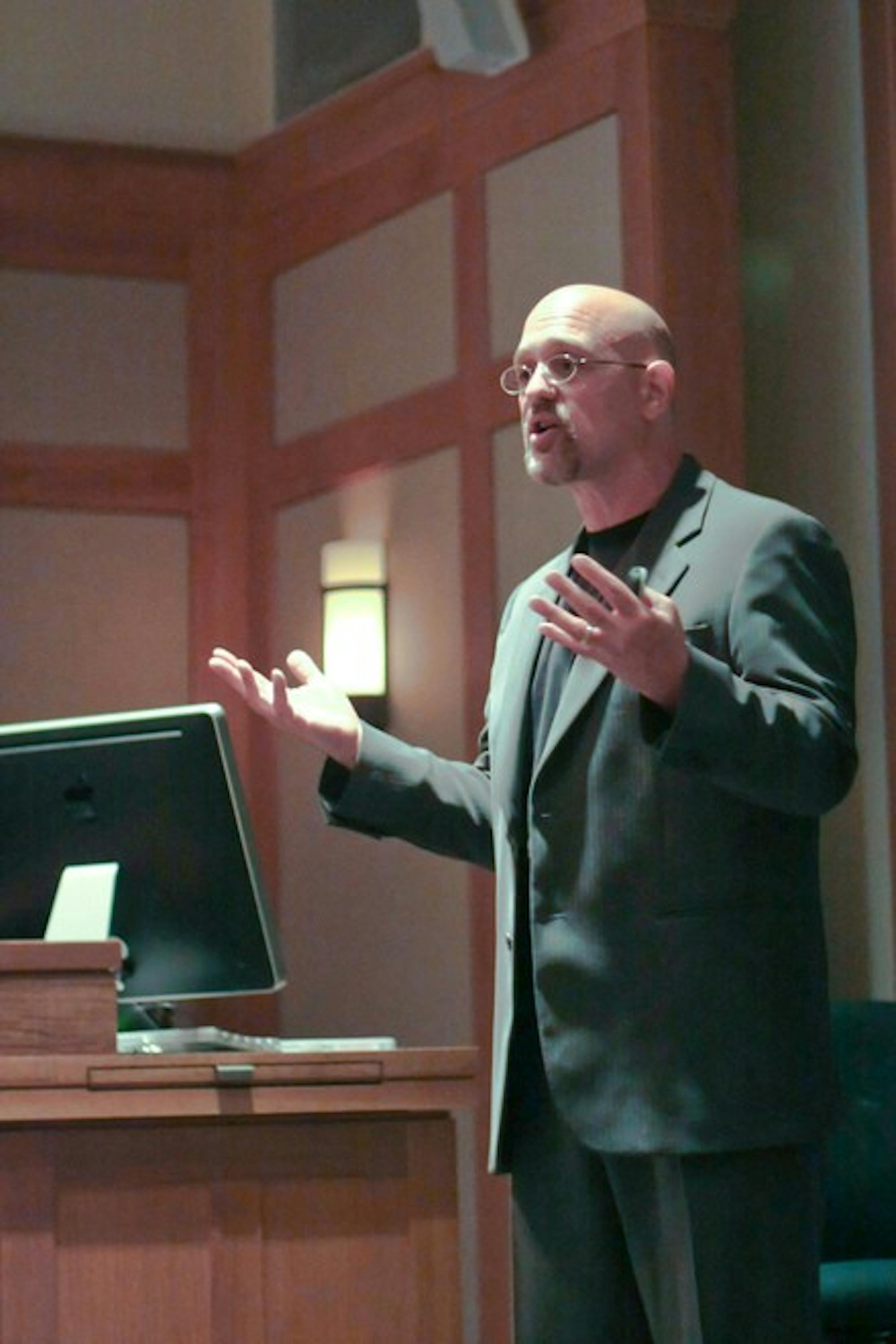In making decisions, people often consider all relevant information and attempt to predict future outcomes. According to Harvard University professor Daniel Gilbert, author of the New York Times bestseller "Stumbling on Happiness," these people are wrong. The best decision-making method is instead to ask another person who has experienced the same situation, Gilbert said in a lecture in Moore Hall on Friday. "In many domains of life, the experience of one randomly selected other person can beat your own best guess by a factor of two," Gilbert said. Gilbert's lecture, "Prospection: Why the Brain Talks to Itself," examined ways in which the brain is unreliable in processing the variables involved in predicting future happiness. Along with other researchers, Gilbert conducted a study in which women participated in individual five-minute "speed dates" with the same man. Before going on the date, the women were asked to predict how much they would enjoy it on a scale from one to 10. To make the prediction, some women were given a profile of the man, which included a photograph and basic information about the man's hometown, hobbies and interests. Others were instead provided with ratings from other women who had gone on dates with the same man. The data showed that women who relied on another's evaluation of the date to predict their own satisfaction were twice as accurate as the women who saw the profile, Gilbert said. In general, human beings make decisions by imagining, or "simulating," what will happen in future situations, Gilbert said. By simulating an experience, the brain can make inferences based on the brain's reaction to the simulation, he said. The problem is that the brain's simulations are often inaccurate, Gilbert said. "Imagination is a great tool, but like any tool, it comes up against obstacles it can't solve," he said. "There are features of mental simulations that make them imperfect guides to your own experiences in the future." The way people imagine events is often "unrepresentative" of the way they have experienced them in the past, Gilbert said. "The least likely events tend to be the most memorable, and the most likely events tend to be the least memorable," he said. "You probably can't remember who actually cleaned your teeth the last time [you went to the dentist], but you'll never forget the face of the person who pulled them out." Mental simulations of future events also tend to be "essentialized," Gilbert said. People often remember only the main feature of an event, Gilbert said. They remember their teeth actually being cleaned, but the smaller, more commonplace details of driving to the office, parking and time spent in the waiting room are not considered when people imagine their next appointment, he said. "People misforecast negative events much more extremely than positive events," he said. People also often fail to consider how they will adapt to situations, Gilbert said. "The day your spouse leaves you, you break down and weep, and it's about three months later that you're telling everybody, This is the best thing that ever happened to me,'" he said. "Mental simulations tend to ignore processes that evolve over time." Mental simulations are also often used to make comparisons that ultimately have an insignificant effect on the actual experiences, Gilbert said. In one study, subjects were given a bag of potato chips and asked to predict how much they would enjoy it. Some subjects were in a room that also contained chocolate, while others were in a room with less appetizing foods like Spam, Gilbert said. The subjects in the "chocolate room" predicted they would enjoy the chips less than the subjects in the "Spam room," but both groups were shown to enjoy the chips similarly when they rated their enjoyment afterward, Gilbert said. Because mental simulations tend to be so untrustworthy, Gilbert said, the most accurate method of predicting future happiness is to utilize the experiences of others. Even though people may seem different, their general reactions to stimuli are basically the same, Gilbert said. "We all like a trip to Paris better than gallbladder surgery; everybody would rather have a compliment than have their thumb nailed to the floor," Gilbert said. "The differences between you and other people are so unimportant that you would do better predicting how you are going to like something simply by asking one randomly chosen person how they like it"
Decision-making process is often flawed, prof. says

Harvard University professor Daniel Gilbert, author of the New York Times bestseller



